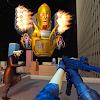The speedrunning community is buzzing over a surprising development: it appears that the Super Nintendo Entertainment System (SNES) is running games faster as it ages. In early February, Alan Cecil, known as @tas.bot on Bluesky, sparked curiosity by suggesting that the nearly 50 million SNES units sold worldwide might now perform better than when they were first manufactured in the 1990s. This unexpected improvement could affect popular titles like Super Mario World, Super Metroid, and Star Fox, leading to faster gameplay over time rather than the expected decline in performance.
The notion that a console could become more efficient with age might seem far-fetched, but Cecil's research points to a specific component: the SNES's audio processing unit (APU) SPC700. According to Nintendo's official specs, the SPC700 operates at a digital signal processing (DSP) rate of 32,000Hz, controlled by a ceramic resonator running at 24.576MHz. However, enthusiasts have noted discrepancies in these rates over the years, influenced by factors such as temperature. These variations in the DSP rate subtly affect how the console processes audio and communicates with the CPU, which in turn can impact game speed.

Cecil's investigation took a deeper turn when he asked SNES owners to record data from their consoles. The results from over 140 participants show a clear trend: the average DSP rate has increased from 32,040Hz in 2007 to 32,076Hz today. While temperature does influence these rates, it alone cannot account for the observed increase. In a follow-up Bluesky post, Cecil shared detailed data, noting that the DSP rate rises by 8Hz from cold to warm conditions, yet the overall trend suggests the SNES is processing audio faster over time. The reasons behind this phenomenon and its precise impact on games remain unclear and require further study.
As the SNES approaches its 35th anniversary, this aging gracefully is stirring the speedrunning community. If the SPC700 continues to process audio faster, it could theoretically reduce load times and affect game performance. This could challenge decades of leaderboard records, although the impact on speedruns like Super Mario World is not straightforward. Even under the most extreme conditions, the time shaved off might be less than a second, and the effects vary across different games.
While the research is still in its early stages, the consensus among speedrunners is that there's little to worry about for now. As Cecil continues to explore what makes the SNES tick, the console remains a fascinating subject in the gaming world. For more on the SNES's legacy, check out the list of best-selling consoles of all time.








